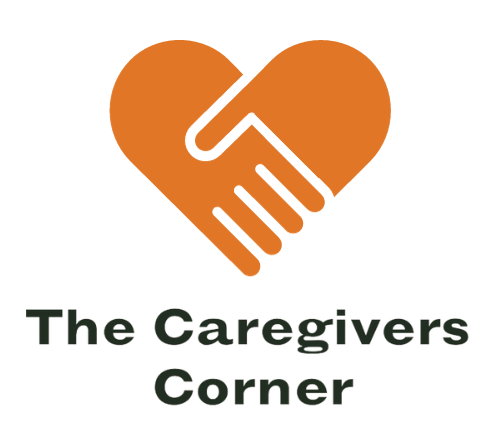Nurture the Nurturer: Tips for Family Caregivers on Balancing Self-Care with Caregiving
Whether it's a quick morning meditation, a short walk, or a moment of quiet reflection, incorporating self care rituals into my routine helps ground me when I am overwhelmed with the demands of caregiving.
Caring for your elderly loved one is simply rewarding. Yet, the caregiving journey, coupled with attending to your own needs and that of your family can be physically and emotionally taxing.
My Journey | After my mother’s first and second hospitalization, my caregiving responsibilities increased exponentially. I only realized the extent of the impact after I lost more than 20 pounds, noticed clumps of hair in my hair brush, my afternoon fatigue was through the roof, and I was snapping more often at those closest to me. Self care had gone out the door. It felt impossible and selfish really, to think about my needs when my mother’s needs were so much more critical. Fortunately, I had loving people around me that helped me recognize that this compassionate journey often demands an intricate balance between meeting my mother’s needs and attending to my own well-being. Finding this balance is the key sustaining a healthy and fulfilling caregiving experience. Here are some practical strategies I use for achieving this delicate balance (most of the time).
1. Acknowledge Your Needs:
As a caregiver, it's easy to prioritize the well-being of your loved ones over your own. Recognizing your own needs is the first step towards achieving balance. Understand that your well-being is not a luxury but a necessity for providing the best care.
2. Develop a Self-Care Routine:
This can be a challenge. However, creating a self care routine can be simple if you integrate a dedicated self-care routine into your daily schedule. Whether it's a quick morning meditation or breathing exercise, a short walk, or moments of quiet reflection, incorporating these rituals will anchor you amidst the demands of caregiving.
3. Seek Support:
Seeking support is probably the biggest challenge and an area of growth in my own caregiving journey. However, building a robust support system is crucial. Reach out to friends, family, or support groups to share your experiences, seek advice, or simply find a listening ear. You don't have to navigate the challenges of caregiving alone. ASK for HELP.
4. Establish Boundaries:
Set clear boundaries to protect your own time and energy. It's okay to say no. Establishing limits ensures that you can provide quality care without burning yourself out. Check out our blog post Care for the Caregiver: Recognizing and Managing Caregiver Burnout for more on setting boundaries.
3. Embrace Respite Care:
Consider respite care options to give yourself well-deserved breaks. Whether it's through professional caregiving services, family, or friends, taking time off allows you to recharge and return to your caregiving role with renewed energy.
When things get overwhelming, sometimes taking small moments to myself to recharge, even if it’s just to enjoy a cup of coffee, gives me the energy for draining tasks, like dealing with complicated insurance calls or searching for specialty ingredients for my mom’s special diet.
4. Customize Your Self-Care Toolkit :
Identify activities that are rejuvenating for you. Whether it's reading your favorite book, listening to music, gardening, or enjoying a cup of tea, tailor your self-care toolkit to align with your unique preferences and needs. Make a list of your favorite self-care activities in your journal and keep it handy.
5. Create a Personalized Coping Kit:
A personalized coping kit is something everyone should have. A coping kit is essentially a collection of items, activities, and strategies that you can easily access to help you manage stress, anxiety, or difficult emotions. Check out my blog post My Serenity Stash: Creating your Personalized Coping Kit.
6. Prioritize Your Emotional Well-Being:
Caring for an elderly loved one can be emotionally taxing. Prioritize your emotional well-being by finding productive ways to process your emotions. This could be through journalling, talking to a trusted friend, pastor, professional counseling, joining support groups, etc. Processing your emotions is a crucial aspect of maintaining balance.
7. Prioritize Your Physical Well-Being:
Be proactive in taking care of your physical health care needs. This includes getting routine physical examinations, regular dental and vision care, and follow up care with any specialists that are a part of your comprehensive medical care. In addition, incorporate a regular exercise regimen into your day or week. Don't forget to take your vitamin supplements and adopt a healthy diet. Prioritizing your physical health is crucial in fulfilling your responsibilities as a caregiver and also to make sure you maintain the best version of you.
8. Reflect and Adjust:
Regularly reflect on your caregiving experience. Assess what is working and what needs adjustment. Be flexible in adapting your self-care strategies as the needs of both you and your loved one evolve.
Reminder:
As you care for others, it's equally important to care for yourself, to ensure that your caregiving journey is one of fulfillment, resilience, and well-being.
8. Celebrate Small Victories:
Do more of THIS! Acknowledge and celebrate the small victories in your caregiving journey. Recognize your efforts, and don't underestimate the positive impact you are making in the life of your loved ones.
Balancing self-care while caring for an elderly loved one is an ongoing process. By acknowledging your needs, seeking support, and tailoring self-care practices to your unique preferences, you can create a harmonious caregiving experience. Remember, as you care for others, it's equally important to care for yourself, to ensure that your caregiving journey is one of fulfillment, resilience, and well-being.



